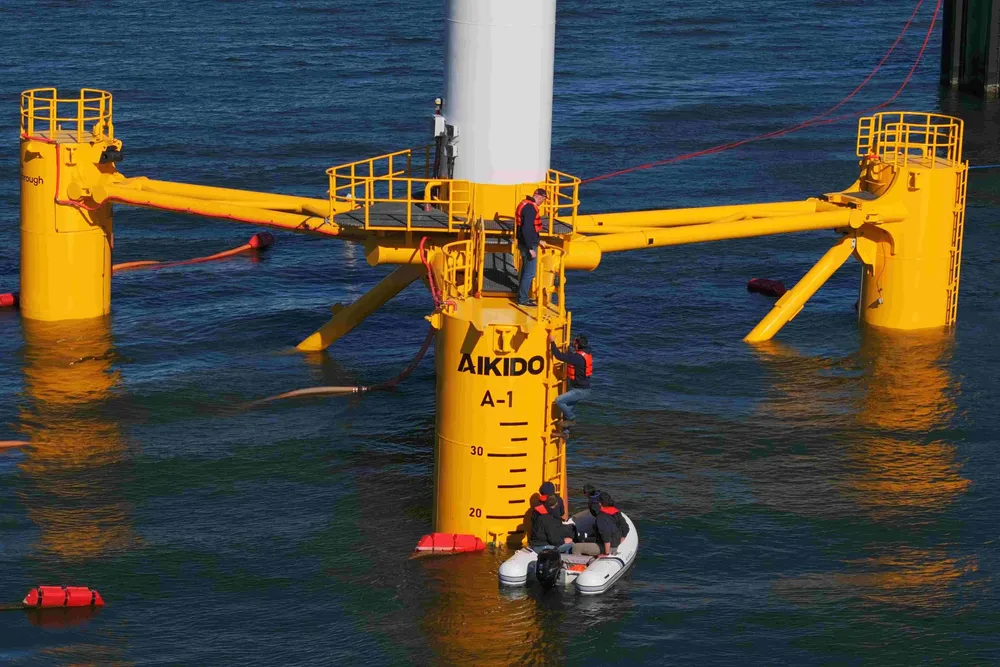As Trump targets wind, Bill Gates-backed floating turbine platform looks outside US
Breakthrough Energy-funded Aikido Technologies launched its quarter-scale folding platform in Mississippi but is looking for opportunities in Europe and Asia-Pacific

San Francisco-based Aikido Technologies launched its quarter-scale foldable floating wind platform last month in Mississippi on the Gulf of Mexico coast, demonstrating its feasibility to potential customers.
The deployment was successful, and the 55-tonne platform built by offshore energy contractor Chet Morrison righted itself using seawater ballast as designed. Already the company is planning its next steps.
“And so, we are currently considering a couple of different options about where to start working on this project. I can't say where; I can say they're not in the US for, I think, very obvious reasons.”
The president has likewise put a moratorium on federal funding, including from the Department of Energy (DoE) for research into renewable energies.
Yet Kanner doesn’t see Trump as having an immediate impact on the nation’s nascent floating sector.
“Trump 2.0 is obviously slowing down the fixed-bottom offshore wind industry; I think it remains to be seen how much slowdown there will be from this on floating projects that are in the pipeline,” he said.
More than 7GW of capacity is already under development off California and four leases were purchased in the Gulf of Maine last October.
“In terms of the material effects, like on permits, that would be approved or denied under Trump, there's very little there for floating in the US,” he said.
Instead, Trump’s disruption of the offshore wind market will lead to “some amount of momentum that is lost” in floating, Kanner said.
“You're seeing with our company looking to deploy technologies and projects abroad, that definitely will become a missed opportunity for the US,” he added.
Trump 101
In 2022, it gained the attention of Microsoft-founder Bill Gates’ Breakthrough Energy Fellows incubator, which gave the startup access to capital and expertise in the climate and energy space.
As a startup, Aikido's most important effort “is to try and compress the timeline, to accelerate the deployment, while minimising the project risk and the capital as much as we can, to fully prove and de-risk our technology,” he said.
For Aikido, this means access to sufficient portside industrial manufacturing capacity and an efficient permitting regime.
With those requirements in mind, Aikido is looking to Europe or Asia-Pacific, including China, Japan, South Korea, and Taiwan.
“It's a global economy that we live in, and other countries have set up different incentives and different sites to try to attract this type of technology development,” Kanner said.
“We think Aikido is well positioned to take advantage of that. And we hope that the political climate changes,” he added.
(Copyright)